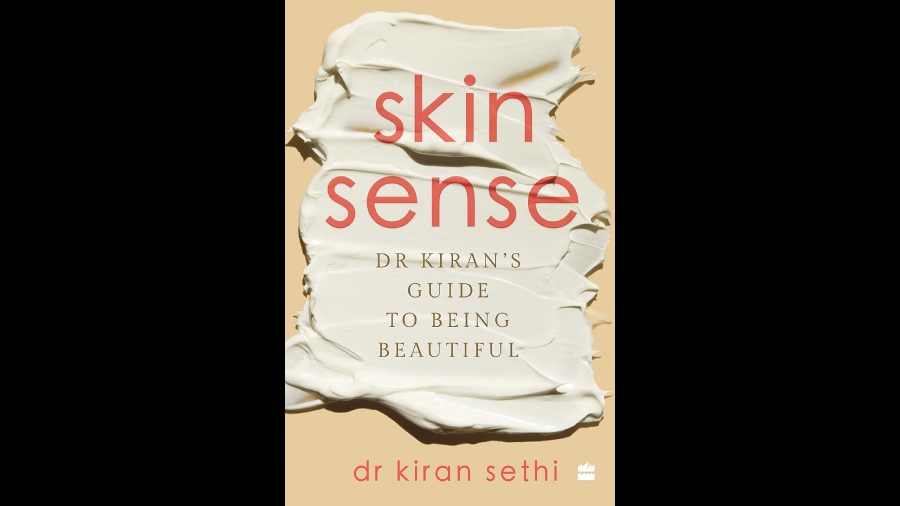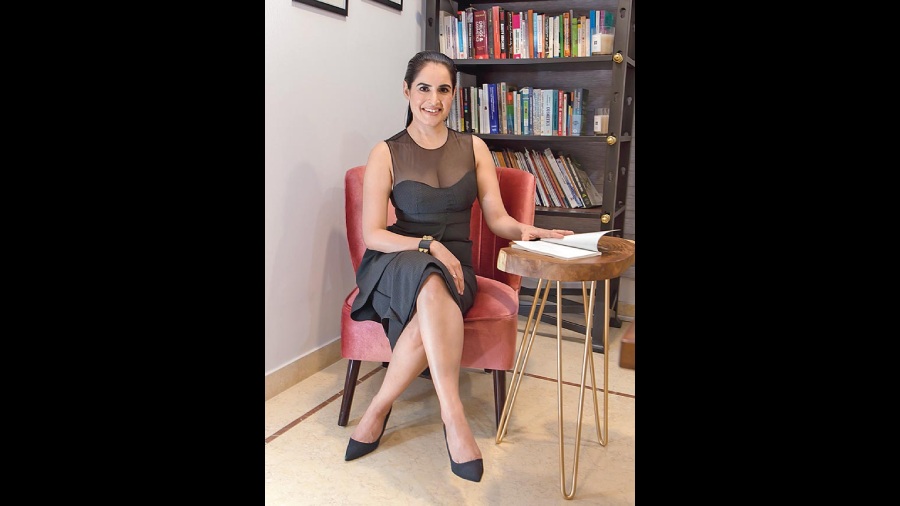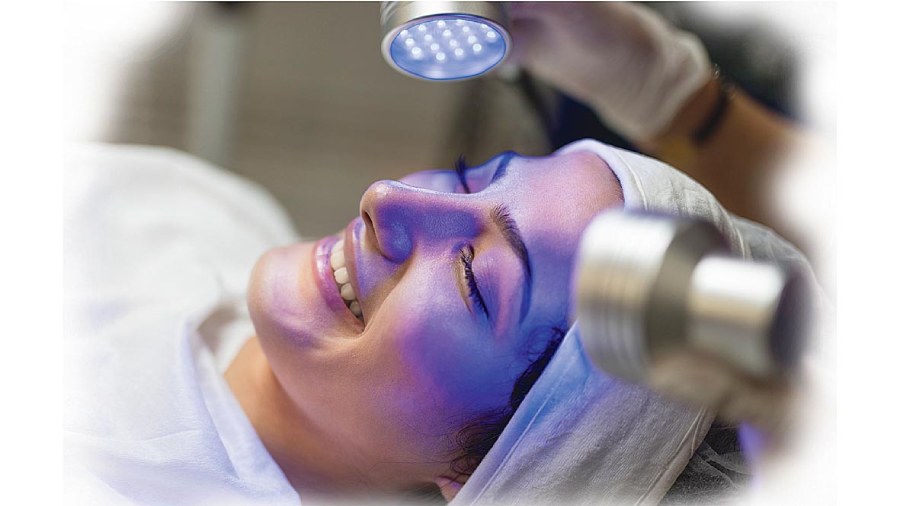Natural DIY skincare can be your ‘only’ skin routine if you already have genetically healthy skin. But as we discussed in the chapter on skin, we are not the ‘giraffes’ of skin. We don’t have perfect or ‘normal’ skin, certainly not all the time. Even with great genes, all of us are susceptible to environmental factors, such as sun damage, pollution, dehydration and ageing. DIY or home-made skincare solutions cannot address these effectively. It is much worse if you have skin with issues, for example, if you have acne-prone or sensitive skin or pigmentation. Home-made solutions do not work in such cases, and if you leave things unattended for too long, you can end up with a lot of scars and marks, which are much harder to get rid of.
Case in point: A client comes in with a dark depressed patch on her forehead that’s visible from a distance.
Client: ‘Doc, I don’t know how this happened!’
Dr K: ‘What home remedies are you using?’
Client: ‘I used some lemon juice on my skin, before going out on a day picnic!’
Dr K (screaming inside): ‘WHAT!’
Lemon is a known photosensitizer, which means it makes you really sensitive to the sun. So when you go in the sun after even brief exposure to lemon on your skin, you get rashes that look dark, red, depressed or swollen, and they are not pretty. And that glow you think you are getting from lemon? It’s the same as doing an off-the-shelf chemical peel with an ingredient that is halfway effective but with too many side effects.
What’s the benefit of science? If I am going to give you a chemical peel, I will choose ingredients for your skin type, for your lifestyle and ones that work with minimal side effects. Our ‘chemicals’ are based on years of research and we know how to use them.
Another case in point:
Client: ‘I have too many painful zits on my face but I only use natural home remedies! How can this be?’
Dr K: ‘Which home remedy have you used recently?’
Client: ‘Oh! The cinnamon face-pack was wonderful! I read on the internet that it’s great for acne-prone skin.’
Dr K (seething with anger, shaking fist in the air): ‘WHYYY?’
Cinnamon is a well-known irritant and can trigger rosacea. Rosacea can often show up as painful pimples. The truth is that you can’t fully diagnose your skin on your own, and experimenting without knowledge can cause serious damage.
Sure, allopathic science has its limitations and its side effects. But we know what they are, and we also know their benefits. And all your home remedies are essentially using the base of all those active ingredients in top products out there.
Another self-remedy most people are guilty of is taking supplements without caution. Many supplements, especially when taken without proper knowledge, have lots of side effects. Vitamins can have adverse effects on your body, and can even cause diseases if overdosed. Do you know vitamin B12 can cause zits? Just because it seems ‘healthy and natural’ doesn’t mean it is side-effect-free. In the same way, homoeopathic and ayurvedic medications also have side effects, even though they are essentially ‘natural’!
Everything you do has a side effect. Just know what you are doing and navigate through it. When you need results, please go to a specialist to avoid serious side effects.

A DIFFERENT WORLD
The other, most important, truth is that we inhabit a world very different from the one our grandmothers, or even our mothers, lived in. The pollution in our environment is at its worst. It can cause acne, photo-ageing, pigmentation and more. The blue light from our screens and devices is problematic, causing early ageing, sagging, pigmentation and a host of other problems. The ozone layer has weakened over the years, and therefore, the UV rays are stronger. About 70 per cent of skin ageing is caused by the sun. We have a lot more HEV light exposure from our phones, which causes the same side effects as those caused by UVA rays. We have been exposed to many of these problems since a very young age. What you are exposed to when you are younger affects how you look when you are older. It is cumulative skin damage.
Stress-Mess
Let’s not forget the most significant factor: stress! Look at how we live our lives today — the goals and expectations we have from ourselves, the balance of work and personal life, managing social media and presences, the expectation to be better parents, the struggle to live a better life. We are busier than ever. And while we are more mentally active, we are less physically active. Physical activity greatly contributes to a healthier lifestyle and healthier skin. People in the older generations were less anxious. Today, we are more connected, but it has also made us more anxious. We constantly want to know what the world is up to. Stress shows up on your skin big time. It shows up as pimples, as PCOS, as pigmentation.
Also, the food that we eat now is less healthy. There are more antibiotics and hormones in our food. It is not ‘natural’. There are pollutants in our food and water, and they impact us in various ways. So, our lives today are a lot more adulterated than they were for our predecessor generations. All of this triggers inflammation in the system, which then worsens how our skin looks or responds.
It is important to know that your skin is your envelope. It is not designed to be perfect. It is designed to protect and express what is going on inside your body. Your skin is your signal mechanism. It signals that there is a problem. It is your guardian angel. And traditionally, your guardian angel is not supposed to be beautiful. It’s not a part of its duty. But we expect it to be. Now, in addition to performing its duties, our skin also has to look good. We want our guardian angel to be perfect and beautiful and clear and supple and dewy and glowing. Phew!

The lens of love
When it comes to solutions that have been passed through generations in our homes, we attach a certain reverence and tradition with them. If our grandma recommended something for our skin, we accept it with love and use it because of love. But if you look at your grandma, even with great skin, she looks like a grandma. Through our lens of love, she looks beautiful and we want to hold on to that feeling of beauty. But in terms of skincare, when we look beyond the lens of love, we can see that sometimes our skin is not the same as that of our grandmothers. What we want from our skin — for it to look young, supple and radiant — may not necessarily be the same objective that our grandmother has for her skin. Our grandmother wants to maintain her skin as she ages. So, for our individual skin goals, we need to look beyond the lens of love, accept the reality of our skin, and look at skincare objectively.
What is a skin fast?
In my prescribed skincare routine, Sunday is skin-fasting day, wherin you only cleanse, moisturize and sunblock, possibly with as few products as possible (cleansing can even be done with just water). Or you can do a mask every Sunday, without any actives in your skincare regimen that day.
You are an individual
You must understand that you are an individual! What works for someone else, may not work for you. Your skin is your own. It will react differently from others. You are a unique genetic code. No one on this earth has ever been like you or will ever be like you. So, why expect your skin to behave like everyone else’s? It’s not going to. My mantra is: love and accept the uniqueness that is you. Embrace it. And look at your skin from that perspective.
If you want to try home remedies or DIY solutions or stay ‘natural’ — by all means, do. But be objective about it. Be open-minded about the fact that it may or may not work. Give yourself a deadline. If you are trying a home remedy for acne, and it does not improve in one month, or three or even six months, then maybe it is time to treat it medically. I can understand that we all feel more comfortable with certain solutions. If you feel more comfortable with a home remedy, try it out. If it works, great. If not, be open to the idea of a different solution. Listen to your skin.
Don’t hold on to traditions or family remedies just because they have worked for others in the family. Your skin is very important. If it is causing you suffering, don’t continue to suffer. Get it the help it needs. There are treatments available for everything. Acne, pigmentation, scars, ageing — all are treatable or manageable. You can take an approach that works best for you. Try an integrative approach, which is my approach. You can do it holistically, or whatever is comfortable for you. But we should never ignore an entire science because we are scared.
At the end of the day, everything chemical is natural and everything natural is chemical.
Dr Kiran Sethi is a celebrated and sought-after dermatologist in India. Her book Skin Sense is being published by HarperCollins India











